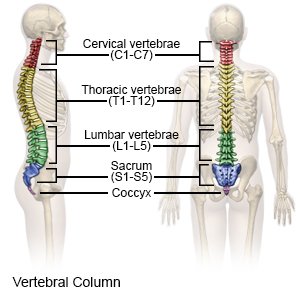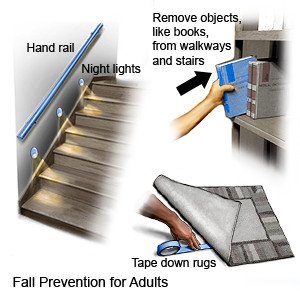Tethered Cord Syndrome
Medically reviewed by Drugs.com. Last updated on Aug 4, 2025.
Tethered cord syndrome (TCS) means your spinal cord is pulled down and tied (tethered) within your spinal column. The spinal cord normally moves freely within the spinal column. When it is tethered, it pulls during activity, causing pain and other problems.
 |
DISCHARGE INSTRUCTIONS:
Call your local emergency number (911 in the US) if:
- You cannot move your legs.
Seek care immediately if:
- You have severe pain.
- Your legs become so weak you cannot stand or walk.
Call your doctor if:
- You have pain in between doses of your pain medicine.
- You have new or worsening symptoms.
- You have new or worsening trouble urinating or having a bowel movement.
- You have questions or concerns about your condition or care.
Medicines:
You may need any of the following:
- Prescription pain medicine may be given. Ask your healthcare provider how to take this medicine safely. Some prescription pain medicines contain acetaminophen. Do not take other medicines that contain acetaminophen without talking to your healthcare provider. Too much acetaminophen may cause liver damage. Prescription pain medicine may cause constipation. Ask your healthcare provider how to prevent or treat constipation.
- Take your medicine as directed. Contact your healthcare provider if you think your medicine is not helping or if you have side effects. Tell your provider if you are allergic to any medicine. Keep a list of the medicines, vitamins, and herbs you take. Include the amounts, and when and why you take them. Bring the list or the pill bottles to follow-up visits. Carry your medicine list with you in case of an emergency.
Manage TCS:
- Prevent falls. Move with care and stand up slowly. Wear shoes that support your feet, and do not go barefoot. Ask about walking aids, such as a cane or walker. You may want to install railings or nonslip pads in your home, especially in the bathroom. Ask for more information on how to prevent falls.

- Use the bathroom regularly if you have bladder or bowel control problems. Go to the bathroom at set times, such as every 2 hours, even if you do not feel the urge to go. Ask your healthcare provider how much liquid to drink each day and which liquids are best for you. You may need to limit the amount of liquid you drink to help control your urine leakage. Do not drink any liquid right before you go to bed. Limit or do not have drinks that contain caffeine or alcohol. Ask about the best foods to help you control bowel movements.
Follow up with your doctor as directed:
Write down your questions so you remember to ask them during your visits.
© Copyright Merative 2025 Information is for End User's use only and may not be sold, redistributed or otherwise used for commercial purposes.
The above information is an educational aid only. It is not intended as medical advice for individual conditions or treatments. Talk to your doctor, nurse or pharmacist before following any medical regimen to see if it is safe and effective for you.
Further information
Always consult your healthcare provider to ensure the information displayed on this page applies to your personal circumstances.
